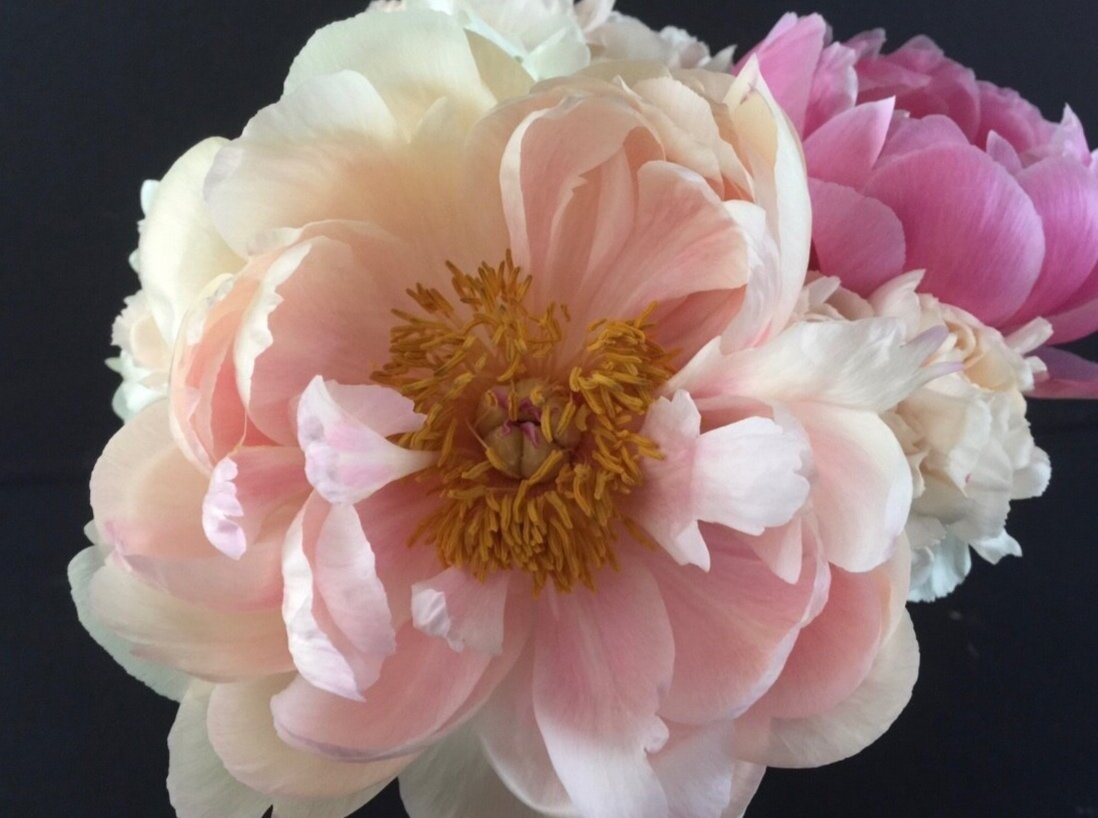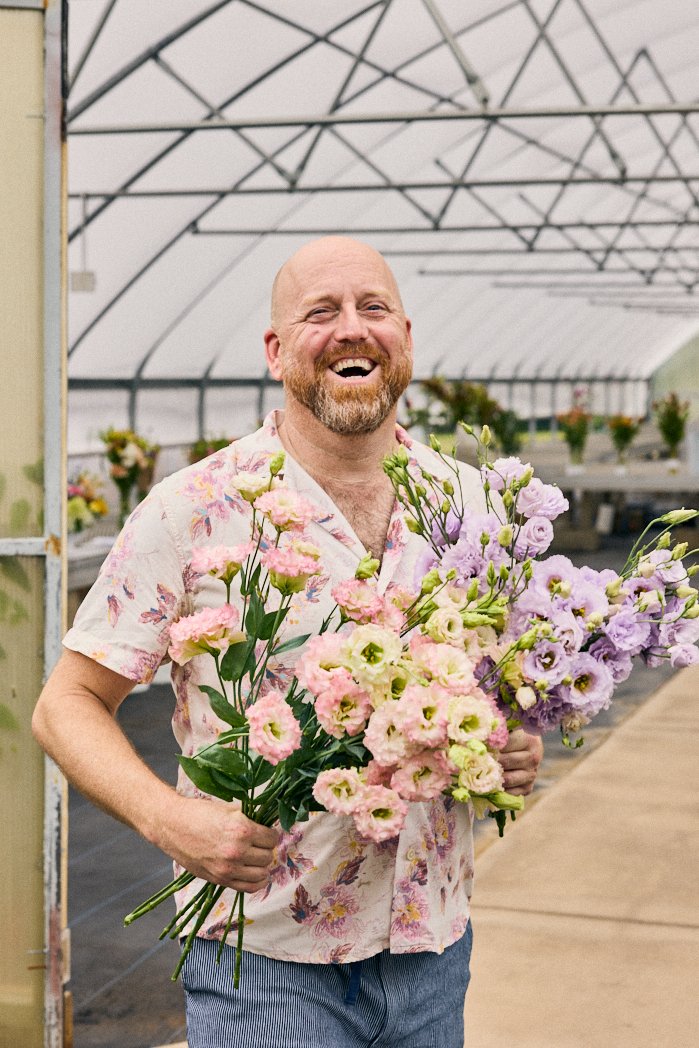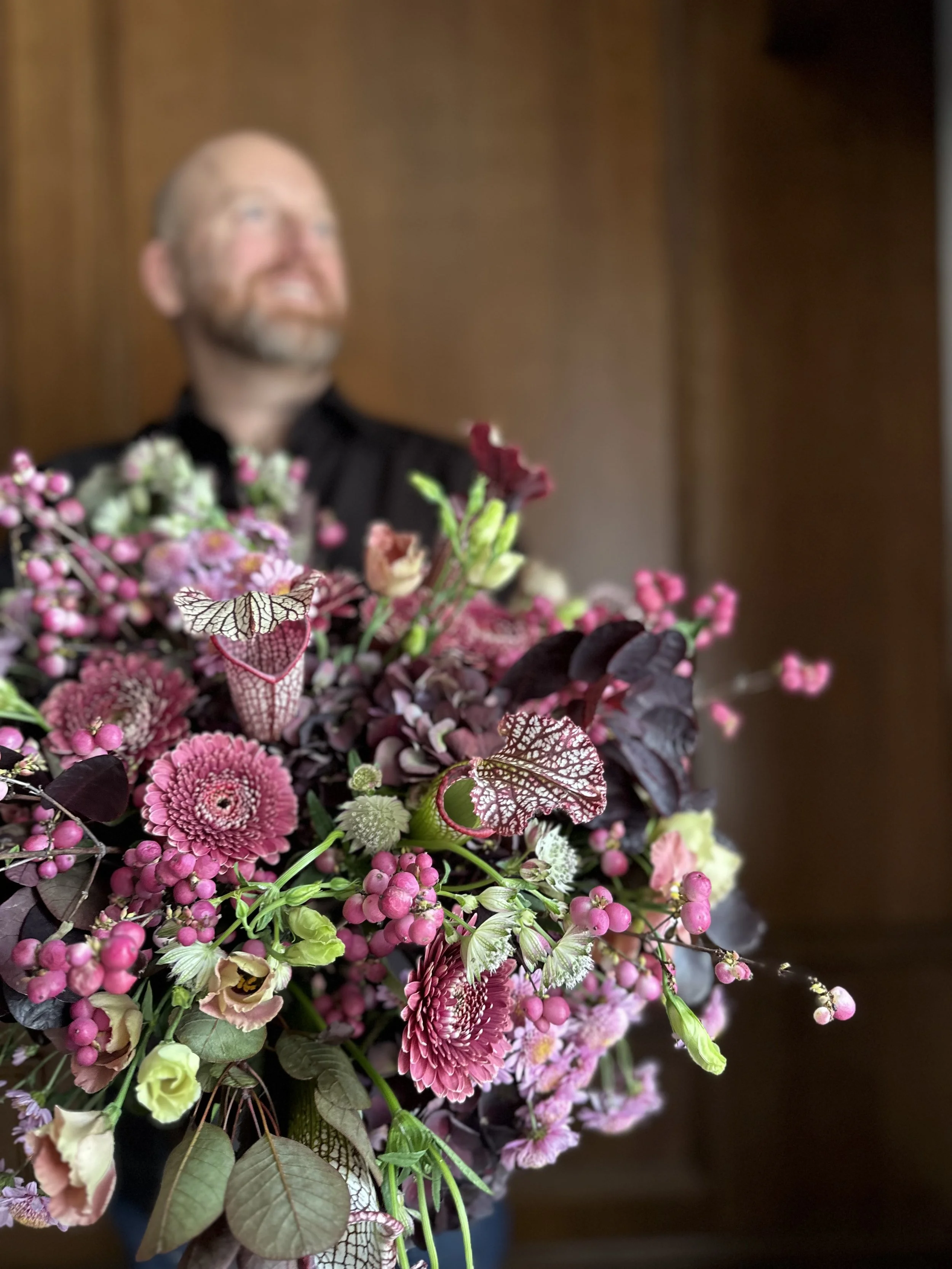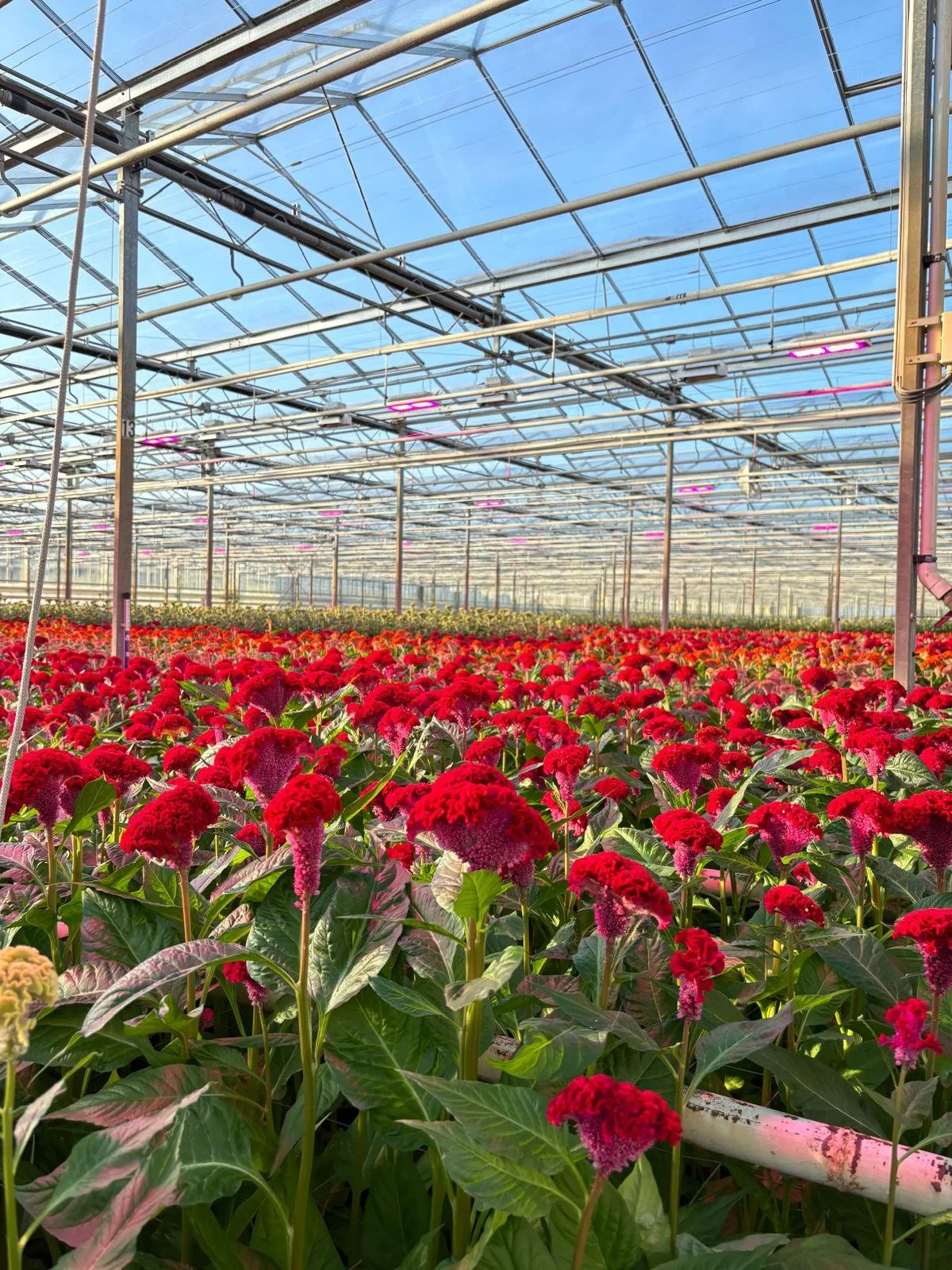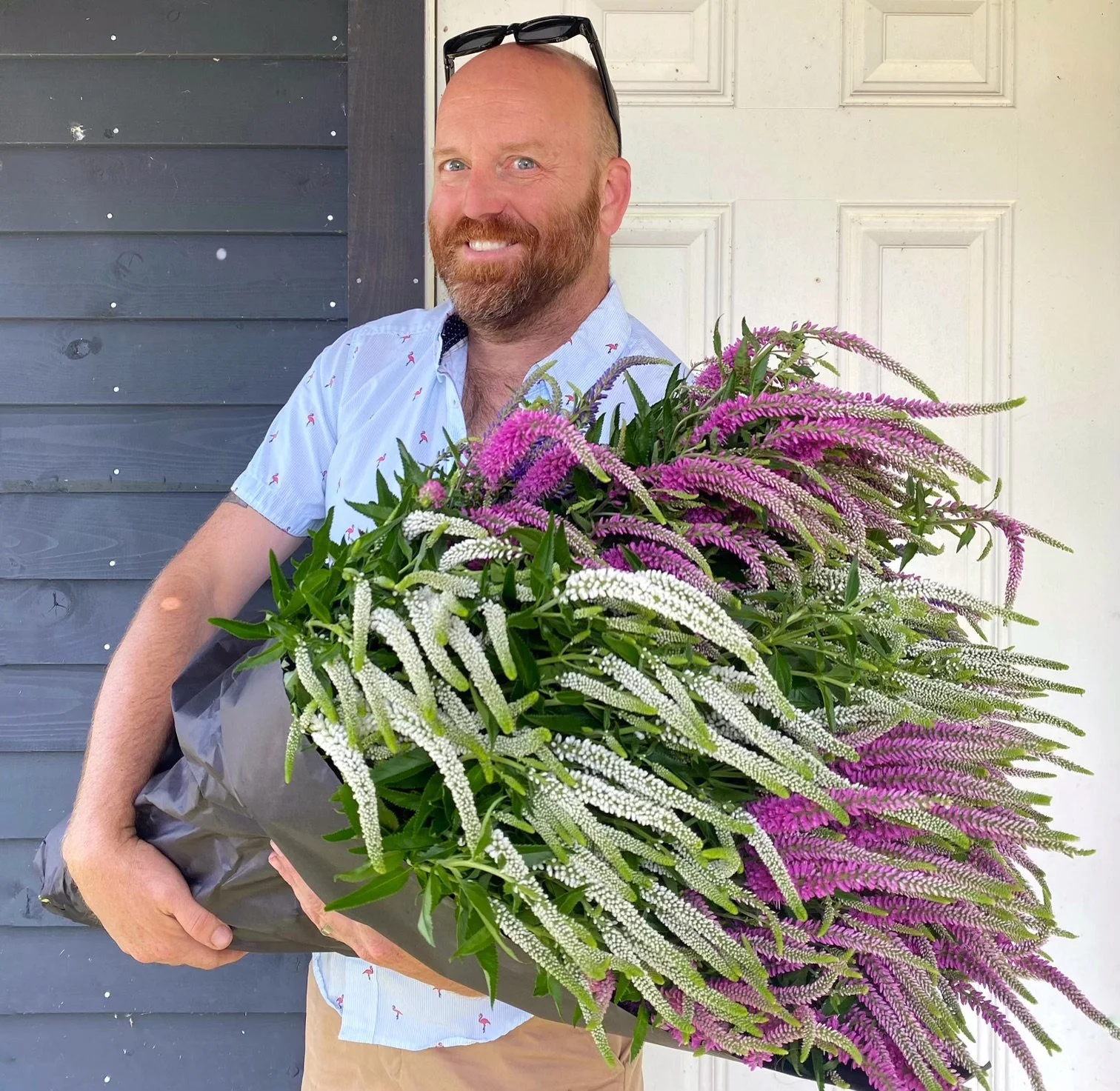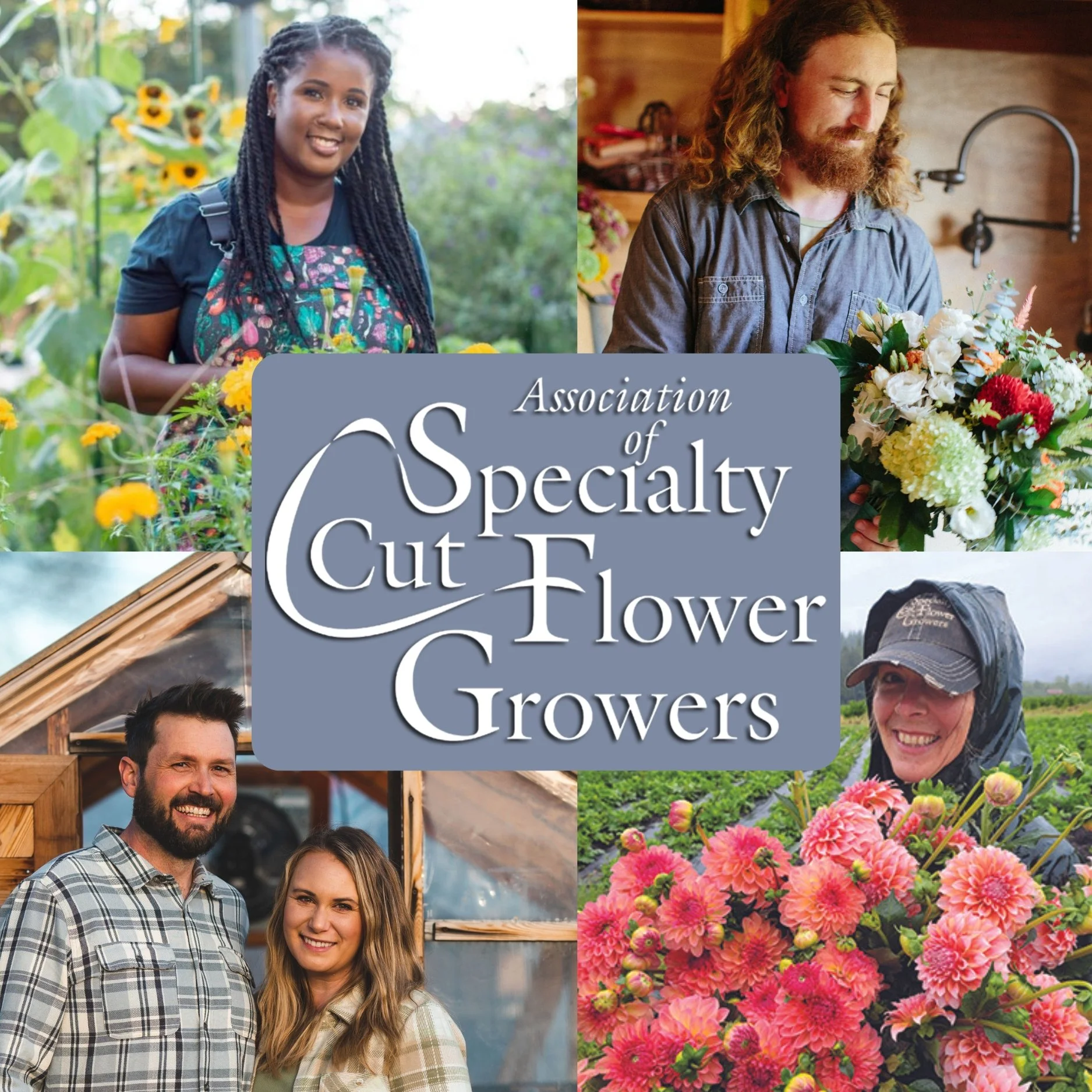Bailey Hale
Farmer Bailey
Bailey Hale has been entranced by plants since he was five years old, when his grandmother taught him to grow flowers. Born in Danville, Kentucky and raised in Lebanon, New Hampshire, Bailey's passions for nurturing all forms of life and creating beauty took him to the University of Kentucky. Here he earned simultaneous degrees in horticulture and opera performance before moving to the Philadelphia area in 2000, to intern at world-renowned Longwood Gardens.
One day in 2002 while waiting tables in a theater-district restaurant (necessary while building up clients as a young floral designer), serendipity struck. "I waited on the chorus master of the opera company–and spilled martinis on his whole table. So we got to know each other. That's how I got an audition, and got in.” Bailey sang with Opera Philadelphia for ten years while working as a freelance floral designer, and at the time of co-founding MODA botanica floral design studio in the heart of the city.
MODA botanica produced floral designs for events, editorials and installations from 2008 to 2011. In 2009 Bailey and his business partner entered their first Philadelphia International Flower Show, taking home Best in Show: Display Garden, Floral; and Best Achievement: Modern Floral Display. Feeling inspired, they traveled around the world looking for interesting flowers and meeting the folks who grow them. In 2010 MODA botanica again won Best in Show: Display Garden, Floral.
At this time, Bailey was also urban farming at his home in Center City. "I inadvertently purchased the lot next to my house when I bought it, so I immediately put in a big garden and many, many chickens," he says. "I did get busted once for the chickens–not by any official city agency, but more likely an annoyed neighbor sending a friend to the door–and that's when I said, I like chickens better than I like living in the city.”
In 2011, Bailey shared his farming dream with future husband Thomas McCurdy, a trained pastry chef. True to the adventurous style that would come to define their collaborations, Bailey and Thomas left Philadelphia behind to farm a rental property in New York state.
By 2013 the pair had settled in the Northeast Kingdom of Vermont, growing cut flowers for wholesale clients, and vending bouquets and Thomas' signature pastries at the Burlington and Stowe farmers markets as Ardelia Farm & Co. By 2020, farmers markets were no more and their core business had transformed: growing sweet peas to supply fellow flower growers with seed for these elegant and hard-to-find blooms.
"Flower farming was never part of our original plan," Bailey says."But after dabbling a bit, and joining the Association of Specialty Cut Flower Growers, I felt like I had found my tribe. I already knew flowers, and I knew how to grow things; I just needed a little more information on how to successfully grow and market cut flowers. I credit ASCFG with filling in those missing pieces,and introducing me to some amazing folks." Bailey served as Northeast Director of the ASCFG board from 2020 through 2022.
As Ardelia Farm & Co. was taking shape, Bailey searched endlessly for sources of new flower varieties in high demand from florists and growers alike. "I couldn't understand why plug growers weren't quickly producing what is popular and trending right now. In the fall of 2015, I put together a group order for six Lisianthus varieties, and got an overwhelming response," he says. "That's when the idea for Farmer Bailey was seeded. I see the trends coming to the US from Asia and Europe, I know what grows well here in the US, and I'm determined to get those items in the hands of the folks who need them while they are still relevant. Floral trends change rapidly and being able to respond quickly is key for the American flower farmer."
When he's not in the greenhouse or on the hunt for the next greatest flower variety, Bailey still amasses all forms of life as a hobbyist. Frustratingly difficult aquarium species, carnivorous plants, and orchids all keep him company as a self-described "hoarder of life."
Bailey enjoys plant breeding and propagation, and is well on his way to developing some orchid varieties." So far, I have released two sweet pea seed varieties–Betty White, and Aloysius Dickinson– and there are more in the works.” Bailey collects horticultural books of all kinds, andseeks out well-made cocktails in his & Thomas' international travels. Today and every day, his favorite flower is Lisianthus. “It is the crop that launched the business," he says. "I love looking at it, holding it, and harvesting it."
Show Notes
There is no such thing as a "bad" flower. Every flower has the potential to enhance an arrangement, contributing to its overall appeal.
There are numerous opportunities to cultivate flowers that were previously overlooked due to their perceived commonality. Many older flower varieties have been continuously bred and refined, such as Limonium, Gerbera daisies, and Alstroemeria.
It’s encouraging to see an increasing number of breeders incorporating the cut flower industry into their plant evaluation and breeding programs. This trend presents exciting possibilities for the future of floral design.
Perennials continue to gain popularity and are expected to be a key trend in 2025. They offer a solid investment, particularly since many varieties have shorter blooming seasons and unique characteristics, making them especially valuable to florists.
Experiment with new varieties. You never know what the next big cut flower trend will be—and you might be the one to discover it.
Royalties are a crucial aspect of supporting and incentivizing breeders. Significant time, effort, and financial resources go into developing the latest and most innovative cut flowers.
It was a pleasure learning about the new Garden Club Plants. Be sure to visit the Gardenclubplants.com and register for the upcoming launch. It’s an excellent opportunity to purchase and experiment with new plants in smaller quantities.
